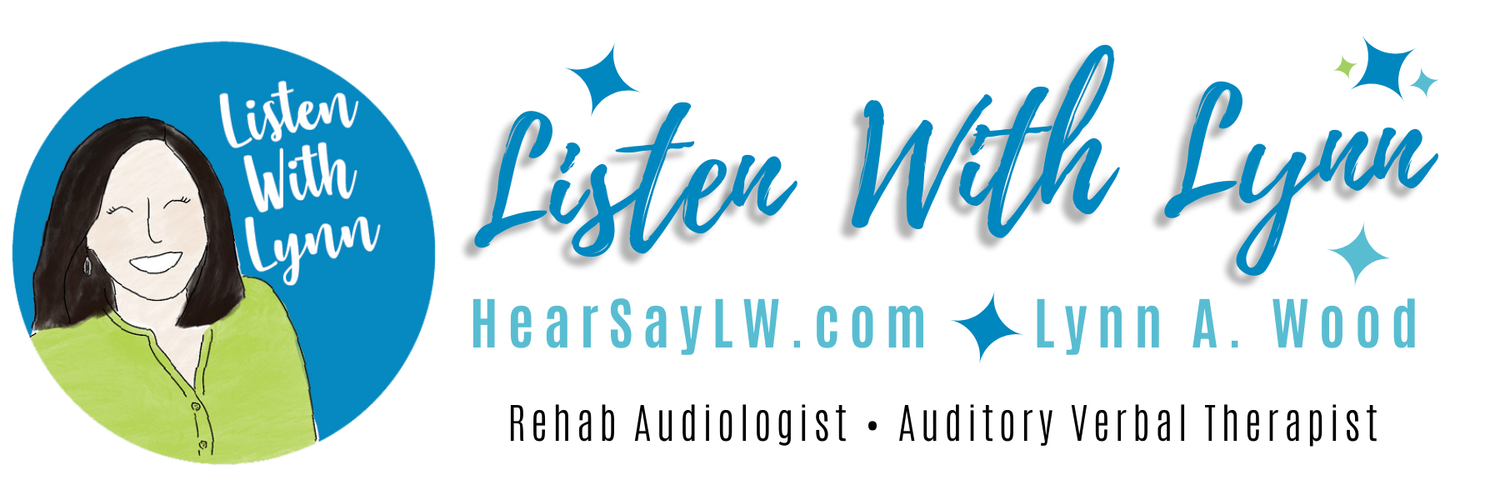For young children and their families, we tuck LSL learning into engaging activities with toys, books, songs, and daily routines. Older children want to have fun, and there is no reason they shouldn’t. Many older kids have been in therapy for years and are not motivated by activities that look like therapy, so games are powerful tools. Two of my favorite games are:
Don’t Say It! Pressman (Ages 6 and up)
Can you get the other players to say FISH? It’s not as easy as it sounds because you can’t say scales, fins, water, or hook.
Skills: Promotes flexible thinking and vocabulary
The artists don’t know what they are drawing but listen and follow the instructions given by another player.
Skills: Fosters describing, problem-solving and clarification skills
is a guest blog I wrote for the Central Institute For The Deaf Professional Development.
Commercially available games that maximize listening, spoken language, and communication are a “WIN” for children who are deaf and hard of hearing. Playing board games in therapy, school and at home can foster positive attitudes towards learning. Well-chosen games played with Listening and Spoken Language (LSL) strategies and techniques strengthen listening skills, direction following, expand vocabulary, auditory memory, auditory processing and comprehension of conversational speech. Simply by playing games, children learn important social skills such as sharing, waiting, taking turns and self-advocacy strategies. Following game rules and fair play builds respect. Games help children take responsibility for their own communication success as they are motivated to listen to others, use intelligible speech and express their thoughts clearly.
Roald Dahl once wrote, “Life is more fun when you play games.” Studies reveal playing games produces endorphins that stimulate the brain. These endorphins give children a great sense of happiness and excitement that foster favorable learning opportunities. Games can make learning seem almost effortless. For young children and their families in early intervention, we tuck LSL learning into engaging activities with toys, books, songs and daily routines. Older children want to have fun, and there is no reason they shouldn’t. Many kids and teens have been in therapy for years and are not motivated by activities that look like therapy, so board games are powerful tools.
The Game Plan
Professionals and parents are responsible for weaving LSL strategies, goals and objectives into the game experience. A GAME PLAN is paramount for positive outcomes rather than just a lucky roll of the dice. A strategy for success is worked out in advance. Step one is choosing a game that is developmentally appropriate based on the child’s current goals and their listening, language and learning needs. Resist the temptation to play a game only because it is popular or marketed as therapy-based or educational. Secondly, determine which LSL strategies to incorporate for effective gameplay. Auditory first, wait time, an expectant look, providing choices, adjusting the size of the set, pausing before challenging information, modeling a correct response and asking, “What did you hear?” facilitate auditory learning. Finally, prepare ahead and know the game set up, rules and any modifications. There is a wise adage often attributed to Benjamin Franklin, “If you fail to plan, you are planning to fail.”
Click HERE to read on.
Central Institute for the Deaf is a school for the deaf that teaches students using listening and spoken language, also known as the auditory-oral approach. The school is located in St. Louis, Missouri. CID is affiliated Washington University in St. Louis.














